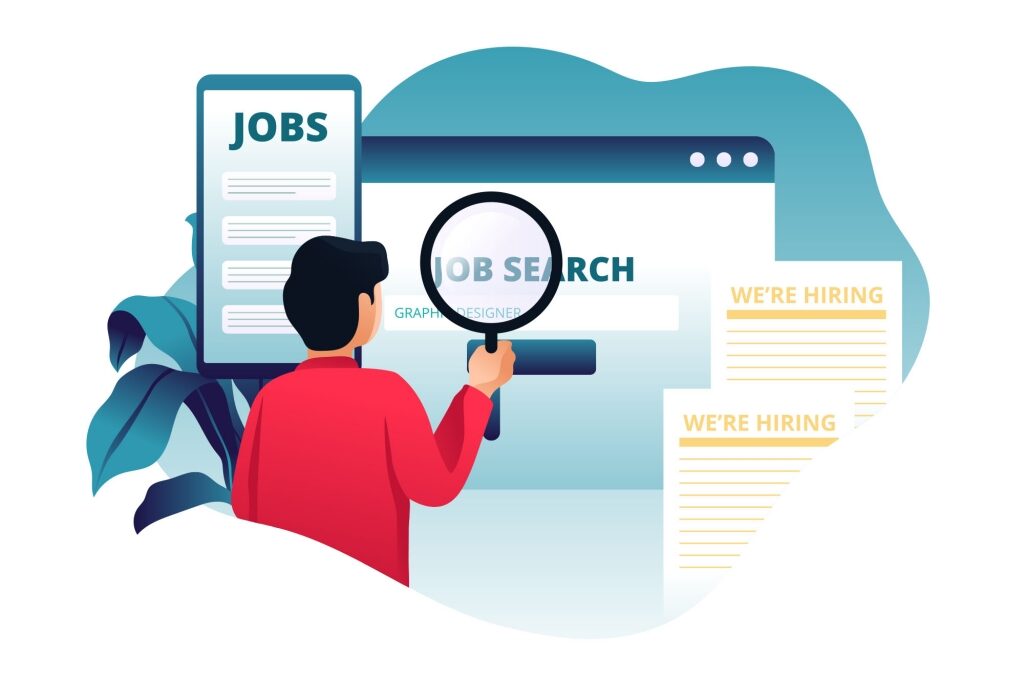Today, volunteering is no longer seen as a burden or a waste of time. It is a stepping stone that can help shape career prospects and make one stand out in the crowd. As a result, there is a fierce competition amongst students to find the perfect volunteering opportunity and nail the interview. While a volunteering interview might be slightly different from a job interview, it isn’t any less important.
If you have been called in for an interview that you were hoping for, but are apprehensive regarding your chances of selection and don’t know what to do, then please, don’t panic. We have put together a set of pointers that will help you get prepared and ace the volunteering interview.
PREPAREDNESS IS THE KEY
Consistent preparation for any interview is essential as it speaks volumes about your professionalism and also reflects your enthusiasm for the volunteering opportunity. There are a number of ways in which you can prepare before the big day arrives!
a) Do your research
Before you go for any interview, it is extremely important to find out as much as you can about the organization, the position, and the person/people who will be interviewing you. Understanding the organization’s mission and history, goals and sense of style can not only help you in determining the sorts of questions that will be asked, but can also help you decide whether it’s the right place for you. The more you know, the better equipped you’ll be to give intelligent answers. Knowing your interviewer’s name and some details will allow you to strike up a conversation, which often leads to the interviewer forming a more positive impression.
b) Make a list of your skills
Another important part of preparation is to make a list of your skills, certifications, abilities, experiences, and professional or personal qualities that are critical to the position. Review your list, and the volunteering requirements, prior to the interview so that you are fully prepared to share with the interviewer your qualifications. It is important you look through your list before hand, as taking long pauses to recollect information during the interview will not help set a good impression.
c) Practise with a mock volunteering interview
This is perhaps most important step that should not be missed. Take advantage of your research and go through a mock interview with a friend/colleague. It is helpful to review potential interview questions so that you are confident during the interviews. In addition, the more prepared you are, the better equipped you’ll be for interview success.
d) Work on your resume
It is safe to say that your CV is the single most important thing in the recruitment process. Make sure it has all that your interviewer needs to know about you and not a word extra. Be direct and prepare your resume in such a way that your qualifications, skills and achievements are searchable and stand out. Add links to your work portfolios, online profiles or blogs so that there is an additional outside reference for your skills.
2) DRESS THE PART
Believe it or not appropriate clothing does make a big difference! The right outfit can help make a great first impression.
This brings us to very important question, what’s the appropriate dress code for an interview? The dress code may vary, depending on the formality of the workplace or the job. However, it is important to pick out an outfit that makes you look professional and feel confident, as well as something that matches the ambience of the organization.
3) GET THERE ON TIME
Trust us when we say this, nothing looks worse than arriving late to an interview! It would be more prudent if you arrive a few minutes early so that you can settle down and be ready for your turn. However, do not come in too early for the interview, as you will put yourself and the recruiter into stress, because he/she might have other working duties before your interview.
In order to be punctual, make sure you know where the interview venue is and how long it will take you to get there. Map out the directions on Google maps beforehand if necessary. If despite all the precautionary measures you are not able to make it on time due to an unforeseeable crisis, make sure you call the recruiter and inform him/her beforehand.
4) MUTE OR TURN YOUR PHONE OFF BEFORE YOU ENTER THE INTERVIEW ROOM
This is something that is easily forgotten but is very crucial! During an interview if your phone starts to ring, it can be annoying and distracting for both, the interviewer and yourself. So remember to mute it or turn it off.
5) FOCUS ON YOUR BODY LANGUAGE
Be conscious (but not overly), of your body language. As you walk into the interview room, smile warmly , firmly shake hands, and say something pleasant. Remember to make eye contact and don’t gesticulate a lot. During the interview, maintain a good posture and appear relaxed. Lastly, try not to cross your arms or legs in front of your body and do not put your hands in front of your mouth.
6) CRACK THE QUESTIONS
All your preparations up till now, boil down to this stage. This is your chance to shine!
Every volunteering interview has a different tone as no two volunteering opportunities are the same. Opportunities differ because of the work, time period, the people you’d be working under and more. However, there are some common questions that are asked across all volunteering interviews. The idea behind such questions is to asses your intent, skills, level of experience and whether you would be a right fit or not. Some of these are:
a) Why have you applied for a volunteering position?
b) What do you hope to seek out of this?
c) Why do you think we should select you?
d) What are your strengths and weaknesses?
e) Describe a time when you overcame a challenge, whether in school or college.
As we have already discussed, practising the answers to these commonly asked questions is one way for acing the interview. But, in order to sail smoothly until the very end you must keep some more pointers in mind. These are as follows :
i) Be Yourself
At an interview, you’ll likely feel nervous and want to perform your best. It’s a scary situation, no doubt about it. But try to remember that you don’t need to put on an act to get this opportunity, you just need to be yourself. Focus on remaining calm and listening closely to the conversation as it unfolds.
ii) Listen closely and pay attention
One of the worst things you could do in an interview is have to ask an interviewer to repeat their question because of your inattentiveness. Don’t disqualify yourself by letting your mind wander. Most interviews won’t take more than 15 minutes, and certainly never longer than an hour or so. Focus on the conversation at hand and respond actively.
iii) Think before you speak
When you’re asked a question, you don’t need to have an immediate answer. In fact, it can be a turn off for an interviewer to feel as if you’ve given no thought whatsoever to a complicated question. Slow down and think about it. Pause and say, “That’s a great question, let me think of an answer.”
iv) Be structured and precise
When giving your answers, try to get the substance of things and keep a certain chronology. Do not jump from one subject to another and try to add too many things – your answers will appear chaotic. Furthermore, even though you have practised the art of answering the questions before hand, don’t try to recite them like a speech on the day of the interview; let your answers unfurl smoothly.
v) Speak about real life experiences
You’ve researched the organization and you’ve read the volunteer’s description. So during the interview, try to match your stories and experiences to what they are looking for. Give a detailed explanation on how you have solved problems and overcome obstacles in the past. But once again, make sure you’re listening to them and answering their real questions, and not just trying to run the interview yourself.
vi) Be honest
If you don’t know an answer, be honest about it, there is no shame. No good interviewer expects you to know absolutely everything. But at the same time express your interest in understanding and learning more or add a good question related to what they just asked.
7) ASK YOUR OWN QUESTIONS
Interviewers often ask if you have any questions during or after the interview, which throw off a lot of first-time interviewees. It is important to bring in your own set of questions as it shows you are engaged in the conversation. Some questions that can be useful during an interview are:
a) How do you like working here?
b) Who will I be working with most closely?
c) Could you provide me with the project details that I will be working on?
8) FOLLOW UP
As the interview comes to an end, it is time to bid adieu to your interviewer with a smile and thank him/ her for taking out the time. The very next day, send across a thank you letter and enquire about the course of events to follow.
Having gone through our fair share of interviews we understand how edgy and anxious you must feel. But it would help if you try to keep an enthusiastic and positive attitude, from the time you start preparing for an interview till it’s time to say goodbye. This will help you remain cheerful and optimistic and sure enough your interviewer will feel the positive vibes too. We hope this blog helps you to crack that interview and you come out of the room smiling!





